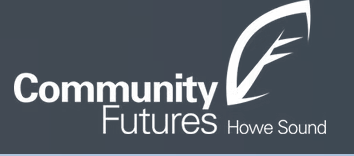“Diversity is, I mean, it's Canada, right? Yes, even speaking to you—your accent there,” says HR consultant and career professional Michelle Precourt to the ÃÛÌÒÊÓƵapp reporter, who has a British accent.
In theory, what springs to mind from these words is that diversity and hence inclusivity should be at the heart of Canada, which means organizations and companies ought to be applying these principles when it comes to seeking potential employees.
In practice, however, not all employers and recruiters are informed or educated as to how to apply these principles universally.
This means employment isn’t always equally attainable for some minority communities, for example, Indigenous job seekers, on the same level as non-Indigenous communities, especially when perceived strengths, such as cultural values and identity, are treated as impediments within a one-size-fits-all approach.
According to Indigenous populations in Canada could reach between 2.5 and 3.2 million by 2041, with young Indigenous people aged 15 to 24 of non-Indigenous Canadians.
The government’s 2021 Census revealed that, across all age groups, the average full-time, full-year employment income of First Nations, Inuit and Métis peoples with a university bachelor’s degree or above was 11.4% lower than that of the non-Indigenous population.
That’s a lot of missing potential; a lot of missing expertise and lived experience for the workplace, according to Precourt.
Precourt, of the not-for-profit (CPC), is a woman originally from Winnipeg, who is now Squamish-based.
She works with a variety of demographics with a strong focus on Indigenous peoples and organizations in Greater Vancouver.
Precourt’s prime observation is that, through cultural values such as humility and storytelling, Indigenous people often downplay their inherent skills and knowledge, particularly whilst writing their résumés, and during job interviews.
Such humility, which is often considered a positive personality trait, may also be a subconscious hindrance, especially if it is a result of past colonial oppression or harmful social conditioning.
Precourt described how she interviewed a young Indigenous man with a blended name, who was applying for a job working with vulnerable people, and how he got more hits from employers when he dropped the Indigenous part of his name.
“I'm like, what a lost opportunity for employers using a name as a basis,” Precourt said.
“I saw his application, and he brought such a calming approach to the interview, and his level of humility stood out as a positive.
“[Humility is] also a personal value of mine, and that in itself is a beautiful value, but it can also be a barrier, because relying too heavily on that can get in the way of you really speaking confidently and clearly about your skills.”
Precourt also elaborated on how the Indigenous cultural value of storytelling may work against an Indigenous employee and how a universal recruitment approach contradicts
“Traditionally, storytelling has been such a strong way of communicating, but that sometimes doesn't translate well to the paper process, for employers who rely so heavily on a rubric, matrix-style, selection process, versus something that is subjective,” she said.
According to employers must provide accommodations for needs relating to grounds of discrimination, such as those belonging to minority communities, or for those who are disabled.
CPC endorses such principles, “showing respect to all clients [to] ensure their unique needs are met and their dignity is maintained,” according to the company’s declaration.
These can be upheld with an educational approach, Precourt explained, encouraging any challenging of internalized prejudice to be executed without aggression or disrespect, to ensure fairness and transparency.
Precourt said there isn’t any one answer to overcoming a lack of diversity, but having an open mind and the ability to self-reflect is instrumental.
“I would say to employers, if you are seeing that you are not getting diversity into your workplace, maybe there is something there for you to reflect on,” she said.
“I'm seeing more and more Indigenous relations positions, which I think is a positive, [but] the core is opening employers’ eyes to [the Indigenous] demographic, and being receptive to different ways of working, and different ways of recruiting.”
You can reach out for support with CPC via or on 866-896-8768.
Ina Pace is The ÃÛÌÒÊÓƵapp's Local Journalism Initiative (LJI) Reporter.
This reporting was produced through the which supports original civic journalism across Canada.
The ÃÛÌÒÊÓƵappBusiness Beat was developed in response to local demand for more business-focused news. To be considered, please reach out to [email protected].

Brought to you by Community Futures Howe Sound, The Sea to Sky's resource for financing and free business support to help local businesses and entrepreneurs in the area. Connect with them directly and learn more at or email Kieran at [email protected]



